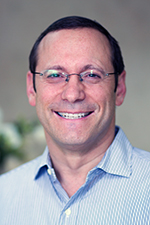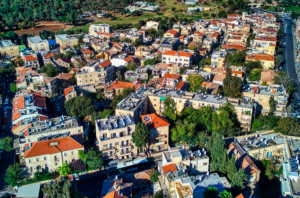By Gedaliah Borvick

JERUSALEM — Nachlaot is a cluster of over two dozen Jerusalem neighborhoods centrally located between Sha’are Chessed and the famous Machane Yehuda shuk. Nachlaot, which means lands of inheritance, became home to communities of Jews who emigrated from many different lands throughout the Diaspora.
Nachlaot’s neighborhoods were established beginning in the 1870s to alleviate the Jews’ cramped and unhealthy living conditions within the the Old City. The Jewish population was extremely indigent, and various overseas benefactors bought land parcels for them located all the way down Jaffa Road, which at that time were considered to be in “the boondocks.” The first community established in Nachlaot was Mishkenot Yisrael, built in 1875 and home to the legendary tzaddik Rav Aryeh Levin.
Nachlaot communities were created for the Syrian, Kurdish, Greek, Galician, Ashkenazi and Yemenite communities. For example, Nachalat Achim, now a haven for Americans, was founded in 1925 to aid Yemenite immigrants, and Ohel Moshe (Sephardi) and Mazkeret Moshe (Ashkenazi) were both established in memory of Moses Mentefiore. In addition, there are kollel neighborhoods such as Batei Minsk, Batei Broyde, and Batei Munkatsh.
Most of the Nachlaot communities were built using the following formula: a courtyard, which housed the well, kitchens and outhouses, surrounded by small homes, each with two rooms. The property lots were very small, ranging in size from 50 to 120 square meters. Most communities were able to cobble together enough funds to build proper housing, but some neighborhoods, such as Nachalat Tzion at the bottom of Jaffa near Gan Sachar, were so indigent that the homes were built of low quality tin and wood.

Due to the disparate religious population concentrated in such tight quarters, Nachlaot had the highest concentration of synagogues in the world at one point, with approximately 300 located within a few blocks. Presently, there are approximately 100 synagogues of all stripes and colors. Many residents delight in visiting a different shul every Friday night and experiencing its distinctiveness and ethnic richness. Some of the popular Friday night services include the numerous spirited Carlebach-style minyans as well asd the famous Ades Congregation, considered the primary synagogue of the Syrian Aleppo community and the center for Syrian chazzanut.
Nachlaot has some small playgrounds sprinkled across the neighborhood and, though there are few schools and kindergartens within the community, by virtue of its central location there are many schooling opportunities in close proximity. In terms of shopping, Machane Yehuda is nearby, plus there are many stores in the immediate vicinity along Yaffo and King George Streets.
After suffering decades of neglect and having many homes fall into disrepair, Nachlaot experienced a renaissance which began around twenty five years ago. A number of Americans, as well as young Israeli couples and families, were attracted by the neighborhoods’ charm, with its winding lanes, attractive courtyards and spiritual character. Some renovated the original homes, while others bought multiple lots to build larger homes.
Nachlaot has regained its original vitality and now attracts new residents of all ages. And as would be expected, as the community has gentrified, sales prices have risen accordingly.
*
Gedaliah Borvick is the founder of My Israel Home, a real estate agency focused on helping people from abroad buy and sell homes in Israel. You may contact him at gborvick@myisraelhome.com. To read previous articles, please visit his blog at www.myisraelhome.com.